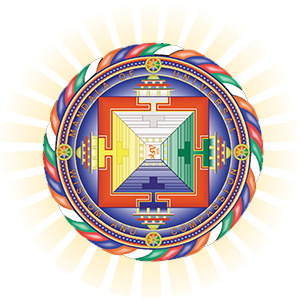Buddhist Hospice Resources
The Project on Being with Dying/Upaya Zen Center
is an endeavor to inspire a gentle revolution in our relationship to living and dying, a means for people to explore the meaning of death in the experience of their own lives and through the experience of each other, and to develop an approach to death that is kind, open, and dignified. Upaya offers trainings to health-care professionals, as well as retreats for caregivers, people with severe illness and others, that emphasize mindfulness and the awareness of death as the ground for the experience of dying and of caring for life.
Access to Insight
This site provides basic understanding of the Buddha's teachings. It also contains numerous pieces of the Pali Canon and the Theravada Text Archives. The latter are a library of some 200 books, essays, and transcribed Dharma talks by masters from the Thai forest traditions, various authors from the Buddhist Publication Society, and other contemporary writers.
BuddhaNet
The Buddhist Information Network is a non-sectarian organization, offering its services to all Buddhist traditions. It aims to facilitate a significant Buddhist presence in the ever-expanding realm of computer communications technology, applying this technology to help make the Buddha's teachings freely available to all.
Buddhist Studies
This Virtual Library keeps track of leading information facilities in the fields of Buddhism and Buddhist studies. Covers: Pure Land, Tibetan, Zen, Buddhist art, listservs and chat-rooms, and much more.
DharmaNet International
is an online clearinghouse for Buddhist study and practice resources. It is home to DharmaNet's own in-house databases and collections, as well as providing links to all online Buddhist resources, large and small. This public service is coordinated by DharmaNet International and is funded entirely through donations.
New York Zen Center for Contemplative Care
is a Buddhist organization based in New York City offering a year-long Buddhist Chaplaincy Training Program, retreats and programs, and outreach meditation programs in an AIDS residence, Beth Israel Medical Center, and the Continuum Center for Health and Healing.
Spiritual Care Program of RIGPA
The aim of the Spiritual Care Program is to demonstrate practical ways in which the compassion and wisdom of the Buddhist teachings can be of benefit to those facing illness or death as well as to their families and medical caregivers. The Spiritual Care Program offers a wide variety of trainings and services to both medical professionals and the general public, including study groups, special seminars, and workshops led by Christine Longaker and others, as well as volunteer projects in hospices in Europe and North America.
Zen Hospice Project
Our approach to end-of-life care is grounded in the Buddhist tradition of action and compassion. The implementation of our approach is non-sectarian and based on universal principles that hold for all humanity. We have successfully adapted our approach to serve culturally diverse communities through our work with community-based and informal healthcare providers.
The Living/Dying Project
The core work of the Living/Dying Project is healing, healing of body, mind, and spirit, healing that is inspired and motivated by the preciousness of human life and by the fact that we will all die but we do not know when. For anyone confronting a life-threatening illness or caring for someone with a critical illness, finding conscious and compassionate emotional and spiritual support for deep healing is essential. For those of us who are not facing a life-threatening illness or caring for some who is, can our mortality and the preciousness of life inspire us also to plunge fully into this work? Using wisdom gathered from decades of guiding the dying, from intensive meditative and devotional practices, and from study of how our psychological development often limits the fruits of our spiritual practice, we offer face to face, telephone and internet based opportunities for deep exploration and manifestation of healing. The map of the healing path that we use is not a shortcut, but it avoids the detours and roadblocks that are common for the modern seeker. We are all caregivers and we are all seekers of healing.

